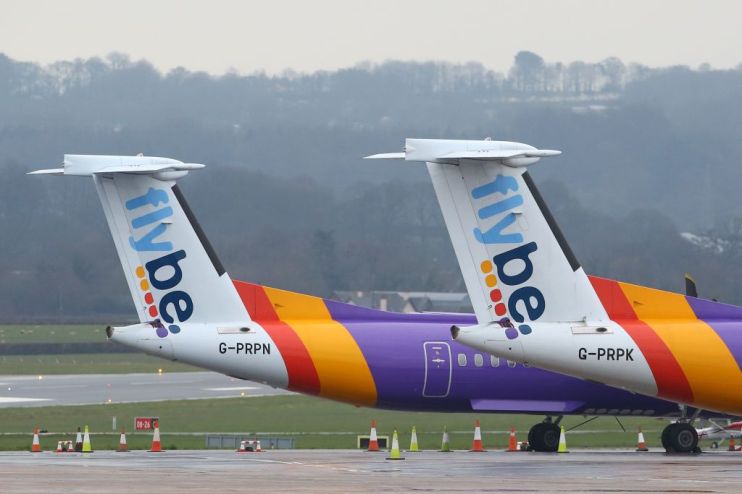Flybe can’t blame Coronavirus for its long term failings

In the early hours of this morning, Coronavirus claimed its first airline as Flybe finally bit the dust. Just as with the thousands of human victims worldwide, it is the vulnerable who are most at risk, and this was no different. They failed because they encountered multiple crises, each amplified by their failure to mitigate the first.
Proof of this lies in the litany of failures that led to the airline entering administration in the first place. The world’s airlines are facing losses of up to $113 billion this year according to the IATA, the worst predictions since 2008 and the financial crash. Despite a series of close calls with the administrators, Flybe neglected to make the tough calls and restructure to restore faith in the operation and utilise the ‘double routes’ – the lucrative return flights offered twice a day or more – as cash cows to support the rest of the business.
In parallel with this is the government and its responsibility to support remote communities with accessible, connected travel, which is why they reached an agreement in January to keep the business operating. This was not just a social requirement but an economic one: the UK is one of the most over-centralised economies in the OECD. London cannot keep waiting for regions to grow to justify investment; further, if it waits for transport services to fail then it is doubly guilty. And this time it was too late.
No business wants to run on state dependency, but the case for essential services should be obvious. This reluctance to lead with infrastructure investment of this kind is a major cause of the perennial stagnation of the UK’s regional economies. Forward planning and an understanding of the need for competition should have made the case for some form of public support such as a tax break, contract or subsidy. Instead, Flybe was left to wither, its success a hostage to its potential as airlines such as Ryanair and easyJet scooped up the most profitable routes by laying on bigger planes and undercutting them on price. Connect Airways, a consortium including Virgin Atlantic and the Stobart Group was brought in to rescue the airline, but despite an investment of £100m, they found the problems were just too big.
Every business will have contingency plans, and airlines are no exception. They have reserve aircraft, standby pilots, fuel arbitrageurs and currency reserves all lined up to mitigate any potential crisis. But Flybe had taken hit after hit since it was floated in 2010: an ill-advised investment in Brazilian aircraft, failure of their IT systems, a war with rival Loganair. If it was Street Fighter, Coronavirus would be the weapon deployed at the end of the battle after the words FINISH HIM flashed on screen. But this is no game. With 2,000 jobs on the line, thousands more passengers out of pocket and transport links to remote parts of the UK affected, its consequences spread further than you would imagine.